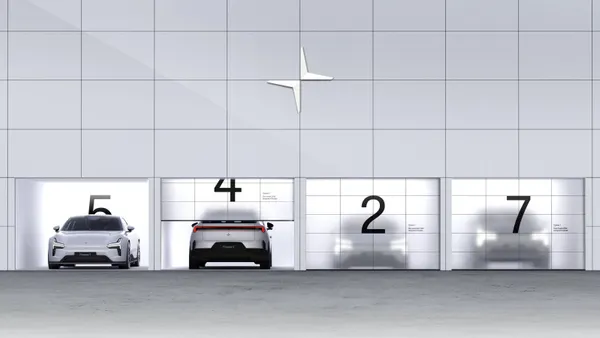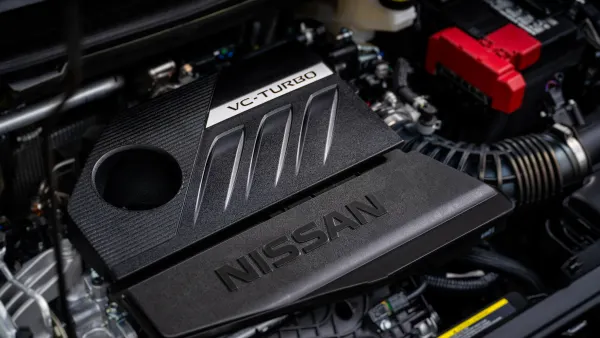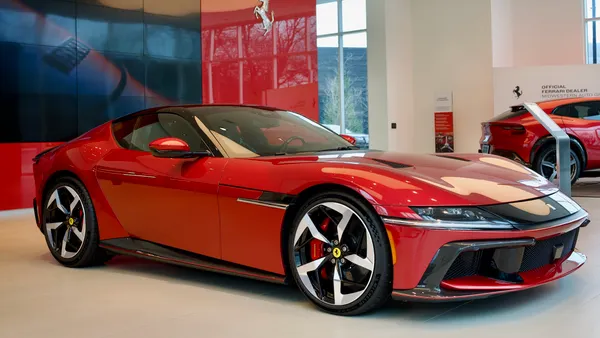Editor's note: This story is part of the WardsAuto digital archive, which may include content that was first published in print, or in different web layouts.
German Supplier Mann+hummel GmbH says it will begin production in Queretaro, Mexico, of a plastic oil pan that can be 35% lighter than a conventional pan made of steel or aluminum.
While weight reduction is emerging as a top priority for OEMs to boost fuel efficiency, cost remains equally important. Although new technology often carries a premium, Mann+Hummel says the plastic oil pan actually costs about 20% less than conventional modules.
Mann+Hummel currently plans 2009 production of the glass-reinforced nylon pan in Mexico. But if demand takes off, the supplier has injection-molding capacity to quickly ramp up output at plants in Portage, MI, and South Bend, IN, says Claude Mathieu, president and CEO of Mann+Hummel USA Inc.
“We hope we will be the first supplier in the world to produce a plastic oil pan for cars,” Mathieu tells Ward's during the recent SAE World Congress. A few heavy-duty trucks already use plastic oil pans.
Unlike with steel or aluminum, a plastic oil pan can be molded with integrated valves or cooling channels, says Business Development Manager John Baumann.
And if the industry adopts lifetime oil filters, those could be integrated as well, in a single manufacturing process, Mathieu says. The plastic oil pan has met all durability targets, the supplier says.
Lighter weight means reduced fuel consumption, which means reduced carbon-dioxide emissions — a key environmental target in Europe and the U.S.
In Germany, alone, Mann+Hummel says CO2 emissions could fall by about 65,000 tons (58,961 t) annually if all passenger-car engines used plastic oil pans.
In other product news, Mann+Hummel has won two additional applications for the “symposer,” a purely mechanical device that creates a sporty engine sound instead of the typical “whistle” that goes along with turbo- and supercharged engines.
The acoustic device attaches near the throttle body and senses engine pulsation during acceleration. A pre-tensioned paddle picks up the pulsation frequency and broadcasts the sound into the passenger compartment through a sound pipe.
Mann+Hummel already supplies the device for the sporty Focus ST in Europe, and the two new programs will launch in North America and Europe by 2010, Baumann says.
Mann+Hummel also says it will supply its “soundpipe,” a device similar to the symposer for acoustic management, for a North American vehicle program in 2011.
The supplier is doing well in developing markets and plans to open a new manufacturing plant in India this year.
In North America, Mann+Hummel launched five new programs in 2007, including an engine cover for General Motors Corp.; a coolant bottle for Volvo Cars; an intake manifold for the Toyota Camry; and air cleaners for GM and BMW AG vehicles. Several additional launches are slated for this year, Mathieu says.
The supplier employs about 450 people in the U.S. and the same number in Mexico. North American sales amounted to about $220 million in 2007. Mathieu says he expects business to remain relatively stable for the next two years, with anticipated growth in 2010.
As raw-material prices punish plastics suppliers, Mathieu says his company is searching high and low for cost savings.
Further challenging Mann+Hummel is the low value of the dollar relative to the euro. As a result, the German company is importing fewer goods from Europe and instead emphasizing higher levels of local production, which is good news for the North American facilities, he says.
Mann+Hummel Tweaks Turbo Whistle
http://wardsautoworld.com/ar/auto_mannhummel_tweaks_turbo









